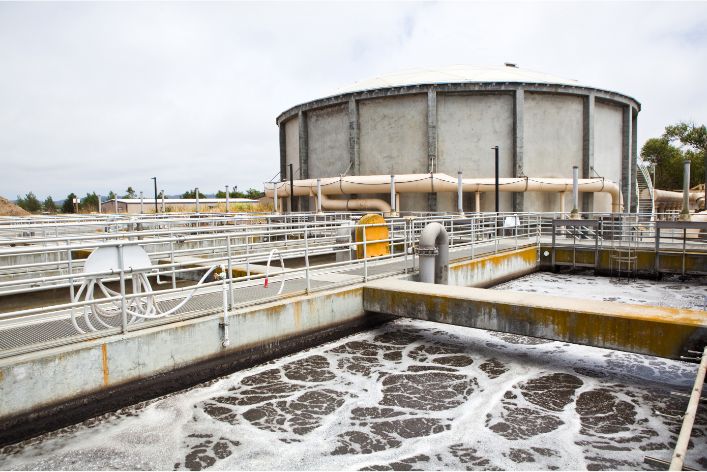Introduction
A reservoir engineer plays a crucial role in this sector by managing and optimizing the production of oil and gas. The oil sector is an essential industry in Nigeria, accounting for a significant portion of the country’s revenue.
They are responsible for identifying and evaluating potential reservoirs, designing drilling strategies, and monitoring production. This makes them an integral part of the industry’s success.
The purpose of this blog post is to shed light on the career path of a reservoir engineer in Nigeria’s oil sector. It aims to provide valuable insights into the profession, including the necessary qualifications, skills, and experiences required to succeed.
In subsequent chapters, we will explore the job responsibilities, potential salary range, and opportunities for growth and advancement in the field. By the end of this post, readers should have a comprehensive understanding of what it takes to become a successful reservoir engineer in Nigeria’s oil sector.
Read: Top 10 Highest Paying Professions in Nigeria: 2023 Edition
Education and Training
Reservoir engineering, a specialized field in Nigeria’s oil sector, demands advanced education, technical skills, and practical experience. Aspiring reservoir engineers must earn an engineering degree, preferably in petroleum engineering, from a reputable university.
While the minimum educational requirement is a bachelor’s degree, many oil and gas employers favor candidates with postgraduate degrees. These could be a Master’s or Ph.D. in Petroleum Engineering or related fields.
Apart from formal education, reservoir engineers need industry-specific training and certifications. These include:
- The Society of Petroleum Engineers (SPE) certification, ensures comprehensive knowledge and skill in reservoir engineering.
- The Oil & Gas UK well examiners’ certification, offers specialized training in well examination and inspection.
- The American Petroleum Institute (API) certification, provides training in offshore drilling and production operations.
Given the industry’s dynamism and continuous technological developments, reservoir engineers must stay current with advancements. Continuing education and professional development, therefore, are paramount for maintaining competitiveness in the job market.
Engineers can achieve professional growth through various means:
- Joining professional associations such as SPE.
- Attending conferences, seminars, and workshops.
- Participating in industry-related training programs.
In a nutshell, becoming a reservoir engineer in Nigeria’s oil sector requires at least a bachelor’s degree in petroleum engineering or a related field, and relevant specialized certifications. The cornerstone of long-term success, however, is the continuous pursuit of education and professional development.
Read: The Significance of Drilling Engineers in the Gas Industry of Nigeria
Roles and Responsibilities of a Reservoir Engineer
A reservoir engineer in Nigeria’s oil sector plays a critical role in the exploration and production of petroleum resources.
They are responsible for understanding the physical properties of the subsurface reservoirs and how they affect the flow of oil and gas. Here are some of their roles and responsibilities:
Understanding Reservoir Characteristics and Behavior
Reservoir engineers use their knowledge of geology, fluid mechanics, and other disciplines to understand how oil and gas are stored in the subsurface reservoirs.
They use various tools and techniques, such as seismic imaging, well logging, and core analysis to determine the reservoir’s size, shape, and properties.
They also study the fluids’ behavior under different conditions, such as pressure and temperature changes.
Conducting Simulations and Modeling Reservoir Performance
Reservoir engineers use computer simulations and models to forecast the performance of the oilfield. They use the data collected from the reservoir to create a three-dimensional representation of it.
They then run simulations to predict the flow of oil and gas under different extraction scenarios. This information helps the production team to plan and optimize their drilling activities.
Collecting and Analyzing Data
Reservoir engineers collect and analyze data from various sources to make informed decisions about the reservoirs. They use different monitoring tools, such as pressure gauges and temperature sensors, to measure the performance of the wells.
They also analyze well-test results and production data to evaluate the reservoir’s potential. This information helps them to identify problems early and take corrective actions to ensure that the fields’ production meets the target.
Collaborating with other professionals in the industry
Reservoir engineers work closely with other professionals in the oil and gas industry. They collaborate with geologists, drilling engineers, and production engineers to optimize the exploration and production of petroleum resources.
For example, they work with geologists to identify the most promising areas for drilling, design the well placement, and predict the reservoir’s performance.
They also work with production engineers to optimize production processes and extend the field’s life.
Basically, a reservoir engineer plays a crucial role in Nigeria’s oil sector. They use their knowledge of geology, fluid mechanics, and other disciplines to understand the reservoir’s properties, forecast its performance, collect and analyze data, and collaborate with other professionals in the industry.
Their work’s success depends on their ability to integrate and use this information to optimize the exploration and production of petroleum resources.
Read: The Demand for Petroleum Engineers in Nigeria: A Deep Dive
Career Path
Junior Reservoir Engineer
A junior reservoir engineer is typically an entry-level position designed for individuals with a Bachelor’s degree in Petroleum Engineering or related fields such as Geology or Chemistry. Some of the job duties and responsibilities of a Junior Reservoir Engineer include:
- Collecting data relating to oil and gas reservoirs.
- Assisting in the design and implementation of drilling programs.
- Creating and updating reservoir models.
- Conducting reservoir simulations and forecasts.
Skills and knowledge that a Junior Reservoir Engineer needs to acquire include:
- Proficiency in using reservoir engineering software tools such as Eclipse, Petrel, or CMG.
- Understanding of petroleum geology, drilling, and production processes.
- Strong analytical skills and ability to troubleshoot reservoir performance problems.
- Effective oral and written communication skills.
Senior Reservoir Engineer
A Senior Reservoir Engineer is a more experienced position and often requires a Master’s degree in Petroleum Engineering or related fields. Some of the job duties and responsibilities of a Senior Reservoir Engineer include:
- Supervising junior engineers in data collection and analysis.
- Performing complex reservoir engineering calculations and simulations.
- Providing technical support to oil and gas field operations and exploration projects.
- Developing and updating reservoir management plans.
Advancement opportunities for a Senior Reservoir Engineer include being promoted to a Reservoir Engineering Manager or Principal Reservoir Engineer position.
Read: How to Become a Successful Pipeline Engineer in Nigeria
Management and Leadership Positions
Management and leadership positions in the oil and gas industry often require significant experience and advanced education such as a PhD in Petroleum Engineering. Some of the skillsets required for management and leadership positions include:
- Strong leadership and mentoring skills to manage a team of engineers and geoscientists.
- Effective communication skills to collaborate with other departments such as drilling and production.
- Project management skills to manage multi-million-dollar projects, budgets, and timelines.
- Expert knowledge in reservoir engineering, geology, and other related fields.
Responsibilities and roles in management and leadership positions have a broader scope such as:
- Developing long-term strategies for oil and gas reservoir development and management.
- Business development activities such as identifying and evaluating new opportunities for oil and gas exploration and production.
- Financial management including budgeting, forecasting, and investor relations.
A career path in reservoir engineering in Nigeria’s oil sector is filled with exciting opportunities for growth, learning, and development. With the right education and skill set, one can advance from a Junior Reservoir Engineer to a Senior Reservoir Engineer and eventually into management and leadership positions.
Read: Understanding the Role of Geoscientists in Nigeria’s Oil Industry

Challenges Faced by Reservoir Engineers
Reservoir engineers play an essential role in the oil and gas industry. They are responsible for designing and implementing methods to extract oil and gas from reservoirs efficiently, safely, and economically. However, they face several challenges that affect their career path, including:
Global Price Fluctuations in the Oil Market
The global oil market is highly volatile, and prices can fluctuate rapidly. Reservoir engineers must develop strategies to keep production costs low while maintaining high levels of productivity.
They also need to consider the impact of price fluctuations on the overall economy and their employers.
Climate Change and its Impact on the Energy Sector
Climate change is a major challenge that affects the energy sector. Reservoir engineers must work with policymakers, environmentalists, and other stakeholders to develop strategies for reducing carbon emissions, promoting alternative energy sources, and improving the overall energy efficiency of the industry.
The Vulnerability and Aging Infrastructure of the Nigerian Economy
The Nigerian economy relies heavily on its oil and gas industry. However, the industry’s infrastructure is aging, and it is vulnerable to natural disasters, political unrest, and other external factors.
Reservoir engineers must develop contingency plans to ensure that production continues in the face of these challenges.
Read: Role of Data Analysts in Driving Nigeria’s Oil and Gas Sector
How Reservoir Engineers Can Overcome These Challenges
Reservoir engineers can overcome these challenges by developing innovative solutions that leverage technology, data analytics, and industry partnerships. Here are some strategies that they can use:
Investing in Technology
Reservoir engineers should invest in new technologies that can improve the efficiency and effectiveness of reservoir management. Examples of such technologies include artificial intelligence, machine learning, and advanced data analytics.
Collaborating with Industry Partners
Reservoir engineers should work with other stakeholders in the industry, such as oil companies, government agencies, and academic institutions, to develop innovative solutions for the challenges they face.
Collaboration can provide a diversity of perspectives, skills, and resources to develop comprehensive solutions.
Advocating for Sustainable Development
Reservoir engineers should use their expertise to advocate for sustainable development in the oil and gas industry.
They can promote alternative energy sources, reduce carbon emissions and promote clean energy transitions.
They can also encourage policymakers to prioritize environmental protection and social responsibility above the sector’s profitability.
Reservoir engineers face several challenges that affect their career path in Nigeria’s oil sector. They must develop innovative strategies to overcome these challenges, including investing in technology, collaborating with industry partners, and advocating for sustainable development.
By adopting these strategies, reservoir engineers can improve the efficiency, safety, and sustainability of the oil and gas industry in Nigeria and beyond.
Read: Exploring the Top Paying Oil and Gas Professions in Nigeria
See Related Content: Field Service Technician: An Unseen Hero in Nigeria’s Oil Sector
Conclusion
Reservoir engineering is an important role in Nigeria’s oil sector and involves analyzing, managing, and optimizing oil reservoirs. A career in this field can be rewarding but challenging.
Some key takeaways from this discussion include the importance of education and experience, the need for continuous learning and development, and the potential for growth and advancement in the industry.
If you are an aspiring reservoir engineer or a student considering a career in the industry, it is essential to focus on building a strong foundation in science and mathematics, gaining practical experience through internships or entry-level positions, and staying up-to-date with the latest technologies and trends.
Ultimately, becoming a successful reservoir engineer requires dedication, hard work, and the willingness to adapt to changing industry needs and challenges. With the right mindset and skills, you can build a fulfilling and lucrative career in this exciting field.
Are you ready to take the first step? Start by exploring educational programs, networking with professionals in the industry, and seeking out opportunities to gain hands-on experience. Your future as a reservoir engineer awaits!




